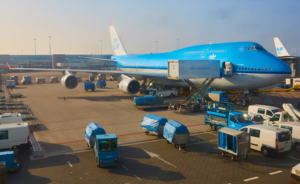In a compelling report presented to the Human Rights Council, UN Special Rapporteur David Boyd has issued a stark warning about the current state of global business practices and their devastating impact on the environment and human rights. Boyd’s report underscores the urgent need for a fundamental shift in how businesses and economies operate to avert irreversible damage to Earth’s life support systems and safeguard human rights.
Colossal Impacts of Ultra-Rich Lifestyles
Boyd’s report highlights the severe ecological consequences of the extravagant lifestyles of the ultra-rich. According to the report, humanity is consuming natural resources at a rate six times faster than the planet can regenerate. This unsustainable consumption is driven by the wealthy, who engage in hyperconsumptive behaviors such as frequent private jet travel, luxurious yachts, massive mansions, and space tourism.
“If everyone consumed like the average American, we would need four Earths to supply the resources and absorb the wastes,” the report asserts. Boyd’s alarming figures illustrate the disproportionate environmental footprint of the world’s most developed nations and the urgent need for changes in consumption patterns.
Profound Human Rights Consequences
Boyd warns that these destructive business practices are not just an environmental issue but also a profound human rights concern. He emphasizes that the current trajectory of business activities is undermining Earth’s life support systems, with significant repercussions for the right to a clean, healthy, and sustainable environment.
The report criticizes states for their inadequate regulation and oversight of businesses, pointing out that governments often encourage or subsidize environmentally harmful activities. This regulatory failure exacerbates the problem and fails to hold businesses accountable for their environmental and human rights abuses.
The Problem of Greenwashing and Other Destructive Practices
The report also highlights several harmful practices, including “greenwashing,” where businesses falsely claim environmental friendliness, undermining scientific facts, enabling corruption, and using legal action to silence dissenting voices. These practices not only mislead consumers but also impede genuine efforts to address environmental issues and uphold human rights.
Boyd calls for stronger human rights due diligence legislation and the adoption of rights-based climate and environmental laws. He emphasizes that businesses must be held accountable for their impact on the environment and human rights, and stresses the need for new business models that prioritize societal benefits over shareholder profits.

A Paradox and the Path Forward
Boyd acknowledges a paradox facing the international community: the need to reduce ecological footprints to combat climate change while also increasing energy and material access in the Global South to improve living standards. He urges wealthy nations to lead by example, reducing their environmental impact and financing sustainable and equitable growth in developing countries.
“Wealthy States must take the lead in reducing their footprints and financing sustainable and equitable growth in the global South,” Boyd asserts. This approach is essential for ensuring a just transition that balances ecological sustainability with the need for improved living conditions in less developed regions.
Recommendations for a Sustainable Future
To address these challenges, Boyd proposes several key recommendations:
- Shift Away from GDP as a Sole Indicator: Moving beyond Gross Domestic Product (GDP) as the primary measure of economic progress to include indicators that reflect environmental and social well-being.
- Implement Human Rights Due Diligence Legislation: Enforcing laws that require businesses to respect human rights and the environment.
- Foster New Business Paradigms: Encouraging business models that prioritize societal and environmental benefits over mere profit.
- Hold Polluters Accountable: Ensuring that companies are accountable for their environmental impact and contribute to mitigating the damage they cause.
Boyd’s report underscores the critical role businesses play in shaping a sustainable future. By adopting these recommendations and shifting to practices that prioritize people and the planet, the global community can work towards a more just and sustainable world.
As Special Rapporteurs are independent experts who receive no salary for their work and are not UN staff, their insights and recommendations are crucial in influencing global policy and business practices. Boyd’s call to action is a crucial step toward addressing the interconnected crises of environmental degradation and human rights violations, urging a collective effort to build a more sustainable and equitable future.
KLM’s Greenwashing Ruled Illegal: A Landmark Case Against Misleading Marketing
In a groundbreaking legal decision, the District Court of Amsterdam has ruled that KLM’s marketing practices were misleading and unlawful, setting a significant precedent in the fight against corporate greenwashing. This landmark case, supported by Dutch campaigners Fossielvrij Netherlands and Reclame Fossielvrij, has far-reaching implications for the airline industry and corporate sustainability claims.
The Greenwashing Controversy
In July 2022, Fossielvrij Netherlands and Reclame Fossielvrij, with support from various environmental organizations, filed a pioneering lawsuit against KLM. This case was the first legal challenge targeting greenwashing within the airline sector, highlighting how KLM’s advertising misled the public about its environmental commitments.
KLM’s marketing suggested that the airline was actively addressing climate change and offered carbon offsetting options that supposedly reduced the environmental impact of flights. This included claims about investing in reforestation projects and purchasing small quantities of biofuels. However, the lawsuit argued that these claims were misleading, as KLM’s business model involved expanding air traffic, which would likely exacerbate the climate crisis rather than mitigate it.
A Historic Ruling
The legal battle reached a critical juncture in June 2023, when the District Court of Amsterdam granted permission for the lawsuit to proceed to a full trial. This decision marked a significant step towards holding KLM accountable for its misleading environmental claims.
In 2024, the court ruled definitively in favor of the claimants. The judge found that KLM’s marketing was indeed unlawful, emphasizing that the airline’s claims about its commitment to the Paris Agreement and its sustainability targets were misleading. The court criticized KLM for presenting an overly optimistic view of its environmental impact and efforts, describing its portrayal as a ‘rosy picture’ that did not align with the reality of its business practices.
Implications and Precedents
This ruling is a monumental victory in the battle against greenwashing. It challenges the deceptive practices of companies that use misleading environmental claims to gain consumer trust while continuing unsustainable operations. For the airline industry and beyond, this case sets a new legal benchmark, demanding greater transparency and accountability in sustainability marketing.
The court’s decision also underscores the need for more rigorous scrutiny of corporate environmental claims. It sends a clear message that companies cannot falsely project themselves as environmentally friendly if their practices contradict their claims.
Global Context
The ruling coincides with broader calls for urgent changes in business practices to address environmental and human rights issues. UN Special Rapporteur David Boyd’s recent report highlighted the severe impact of ultrarich lifestyles and unchecked business practices on the planet’s ecological balance and human rights. Boyd’s report emphasized the need for a radical shift in how businesses operate, advocating for human rights due diligence and a move away from profit-driven models towards ones that prioritize societal benefits and ecological sustainability.
Boyd’s report aligns with the principles upheld in the KLM case, reinforcing the need for genuine and accountable environmental action from businesses.
Looking Ahead
The victory in the KLM case represents a critical step forward in holding corporations accountable for their environmental impact. As companies across industries face increasing scrutiny, this ruling will likely influence future legal challenges and regulatory measures aimed at combating greenwashing.
The case also highlights the vital role of civil society in pushing for corporate accountability and transparency. Organizations like Fossielvrij Netherlands and Reclame Fossielvrij have demonstrated the power of collective action in challenging misleading practices and advocating for meaningful environmental stewardship.
As we move forward, the focus will be on ensuring that the principles established in this case are applied broadly across sectors, fostering a business environment where environmental claims are substantiated by genuine, impactful actions.



